Henry's older brother Arthur died in 1502 which left Henry as heir to the throne. On the death of his father on the 22nd of April 1509, Henry became king Henry VIII. Henry was seen as a clever and active young man, he spoke three languages fluently, he was an excellent sportsman too. He played tennis, he wrestled, he liked archery and bowling. Henry also enjoyed hunting, jousting and hawking. Henry, of course is famous for his dealings with women, there were six wives and assorted mistresses who accompanied him through life.
This kings story has kept us enthralled for many years, his exploits viewed on the big screen and on television many many times. Lets have a look at who has played him over the years.
"Pork Gorging, Head Chopping, Liberty-Taking Romp"
You will know that this is a true statement if you have ever watched the famous banqueting scene. Henry's weight gain is well documented, but this film goes out of its way to give us the wrong impression of Henry. We are shown a sleazy and greedy king, chomping his way though numerous chicken legs and then discarding them over his shoulder. There is some truths here though, we do know that Henry's weight had gradually increased despite his early athleticism, he was a tall man, over six foot with a waist of 39 inches but by the time he had reached his fifties his waist had increased to 52 inches.
Laugton's Henry is hideous, raucous, and totally unlikable.
One minute he is very personable with a loud hearty laugh, the next he is a menacing tyrant. Shaw's Henry is not a bully, but he is clever, his presence is very threatening in the scene in the garden of Thomas More's home. Henry wants to know if More has changed his mind regarding Anne Boleyn, but we know that More could not and would not be swayed, no matter how frightened he was of him, no matter the consequences.
Both Charles Laughton and Robert Shaw show Henry VIII as childlike, where Laughton's Henry is petulant, Shaw's Henry is enthusiastic and spoilt. Robert Shaw was nominated for best actor at the Oscars for this film but it went, quite rightly, to Paul Scofield, for his portrayal of Thomas More, who was the Man for all Seasons.
"mediocre rubbish"
Where the two previous films focus on Henry as greedy and vain, Anne of a Thousand Days is about possession and love. Burton's Henry is strong and self assured and really wants Anne, but later a stubborn streak causes Henry to be dispassionate on her 'betrayal." Richard Burton's Henry would not write the lines
"wishing myself specially and evening in my sweetheart's arms who pretty dukkys I trust shortly to kiss"
his Henry is far more manly than that. Richard Burton as Henry VIII is smoldering and passionate and as far away from the real Henry VIII as I think you could get.
This film is played for laughs and shouldn't really be compared to the others. To be fair to James he was working in the confines of the Carry On ethos, all slapstick and "ooh err missus" and he did write in his biography
"I was really having a go at him"
Nevertheless, not one of the best Henry VIII's around I must say.
lies dying, and he looks back over his life. I watched this quite recently and although it doesn't pack a punch it felt real. Michell's young Henry appears exposed at times and is surrounded by elder statesmen and this does make you think, if only for a little while, that maybe he is not all to blame for the way he turned out.
Meyers played Henry's larger than life character very well, but take away the all the glitter and the gratuitous rumpy pumpy and you still don't have the real Henry VIII.
Our new Henry was a quiet Henry, a Henry that we have not seen portrayed in this way before. There was no sign of Laughton's Henry who stuffed himself silly, no sign of the menacing tyrant of Shaw's character. None of the buffoonery that was Sid James's character. There was not even the seductiveness of Richard Burton's Henry or the vigor of Meyers character.
So what about this new Henry?
Damian Lewis portrays a grounded Henry VIII, a considered Henry, an intense Henry. In fact, it was hard to see the Henry VIII we have come to know at all in Lewis's performance. Saying that, I thought that this Henry was cunning and manipulative letting everyone think they were all in charge when in fact they were not at all!
So there you have it, seven attempts at presenting King Henry VIII to us. Each portrayal showed us something of the sixteenth century kings character, but are we any nearer knowing the real Henry? Probably not, but as a whole I think the actors are not far wrong.
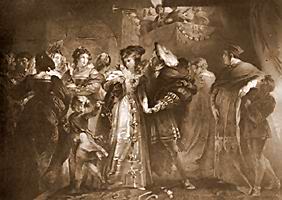
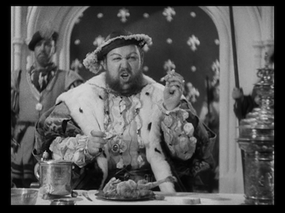
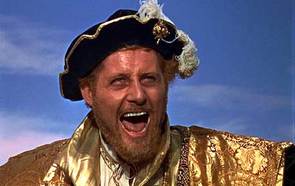
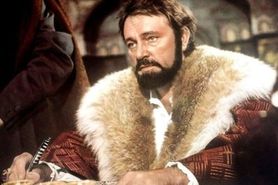
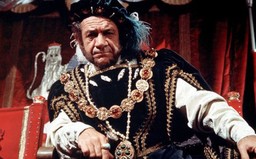
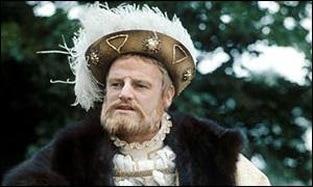
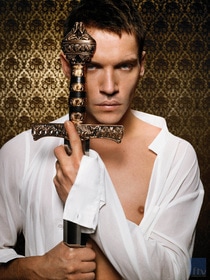
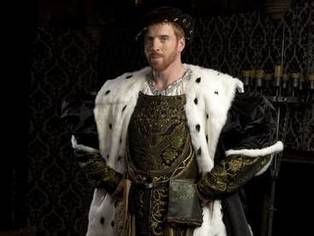
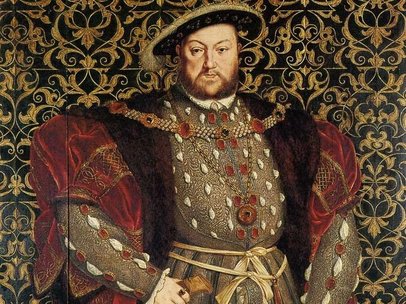

 RSS Feed
RSS Feed
